Government, Industry, and Academia Shaping the Next Generation of Engineers
Today’s guest post is by Swarooph Seshadri. Swarooph is MathWorks’ liaison to EcoCar Mobility Challenge which aims to educate the next generation of automotive engineers.
—
Student competitions have a unique benefit of teaching students, real-world concepts to be successful in a professional environment, such as project management, communication, teamwork etc. A brand-new student competition, the EcoCAR Mobility Challenge, aims to do just that. The following video gives you some more information about the competition.
History
The Advanced Vehicle Technology competitions series has been running for 30 years now and consists of several recognizable competitions such as HEV Challenge, FutureTruck, ChallengeX and more recently the EcoCAR series of competitions. The goal of the program is to provide real-world training to prospective students in engineering, business, and communication to be successful in the automotive industry as they graduate and move on to their professional careers. The program sees a unique blend of government, industry, and academic institutions that brings valuable points of view and experiences to the competition participants. The EcoCAR Mobility Challenge is the latest competition in this line and vows to explore cutting edge automotive technology.
Competition
The EcoCAR Mobility Challenge will be a 4-year competition starting in the fall of 2018. One of the big advantages of having a multi-year competition is that the student competition teams must account for real-world team issues such as people turning over from one year to another, knowledge transfer, and milestones management. Teams attend workshop sessions where organizers/sponsors train teams in tools and processes to help them to succeed for the year. Final events are held in summer every year where winners are declared.
Traditionally, EcoCAR has focused on building hybrid vehicles from conventional gasoline vehicles. For example, in EcoCAR 3, teams were tasked to convert a Chevrolet Camaro into a hybrid sports car, where performance of the vehicle was maintained or improved while providing better fuel economy than the stock vehicle. The competition also had its first Advanced Driver Assistance Systems (ADAS) track where students implemented forward collision warning systems using a variety of sensors such as camera, radar and lidar.
Check out the recap of EcoCAR 3 Year 4 in the video below:
The new competition, EcoCAR Mobility Challenge, takes this to the next level. Students will still be introduced to hybrid vehicle technology, this time transforming a donated Chevrolet Blazer. They will also focus on instrumenting the car with several sensors to implement connected and automated vehicle (CAV) features such as adaptive cruise control and smart lane change. The primary goal of implementing these SAE level 2 automation features with vehicle connectivity is to see their effect on reducing fuel consumption. The teams will target the Mobility as a shared Service (MaaS) market that has been gaining traction in the industry for a new business model in transportation. This is a car sharing scenario like Maven where the driver rents from a fleet of cars paying only for the time they use the service instead of owning the car outright.
Design Philosophy
The students will be designing the propulsion and CAV systems using model-based design. To aid this endeavor, MathWorks engineers worked closely alongside GM engineers to develop a plant simulation model that represents the Chevrolet Blazer using the Powertrain Blockset.
This enables the teams to run simulations for a variety of hybrid architectures and controllers to understand how these design choices affect energy consumption. The fact that the teams receive the vehicles and other donated hardware only towards the end of year 1 means that they must rely on simulations to make crucial decisions such as architecture selection, to decide their outcomes 4 years from now. Teams will also build on these models to implement their own hybrid supervisory control system in Simulink and then use the same models to test their algorithms using SIL and HIL before putting them in the vehicle. This makes modeling and simulation a scalable solution as teams look to years 2 through 4 – a benefit of using model-based design.
Figure 1 Hybrid Electric Vehicle P2 Reference Application from Powertrain Blockset
Figure 2 Performance and Fuel Economy Simulation Results for FTP75 Drive Cycle
Automated Driving System Toolbox aids the student teams to design and verify their perception algorithms for the CAV tasks. Simulation features such as the Driving Scenario Designer are essential to testing these algorithms and make sure edge cases don’t fall through. Teams will also be looking at using Vehicle Dynamics Blockset when designing/testing the lateral control algorithms become the focus.
Figure 3 Adaptive Cruise Control With Sensor Fusion Example Model from Automated Driving System Toolbox
Figure 4 Birds-Eye Visualization of Adaptive Cruise Control Simulation in a Custom Driving Scenario
As a part of the sponsorship, MathWorks provides complimentary software licenses, mentor support, and technical training to all teams.
Teams
In the first half of 2018, teams were invited to submit a proposal to be considered for the competition. After careful consideration, 12 North American universities were selected as follows:
- Colorado State University
- Embry Riddle Aeronautical University
- Georgia Institute of Technology
- McMaster University
- Mississippi State University
- Ohio State University
- University of Alabama
- University of Tennessee
- University of Washington
- University of Waterloo
- Virginia Polytechnic Institute and State University
- West Virginia University
How To Get Involved
If you are in any of these universities, reach out to your university’s EcoCAR team to get more information on how to participate! EcoCAR is the premier environment to learn hands on skills for future automotive engineers, aided by the government, industry, and academia together.
Follow the EcoCAR Mobility Challenge on your favorite social media platform for the latest updates:
- Twitter: https://twitter.com/ecocarchallenge
- Facebook: https://www.facebook.com/ecocarchallenge
- YouTube: https://www.youtube.com/ecocarchallenge
- Instagram: https://www.instagram.com/ecocarchallenge/
- LinkedIn: https://www.linkedin.com/company/ecocarchallenge/

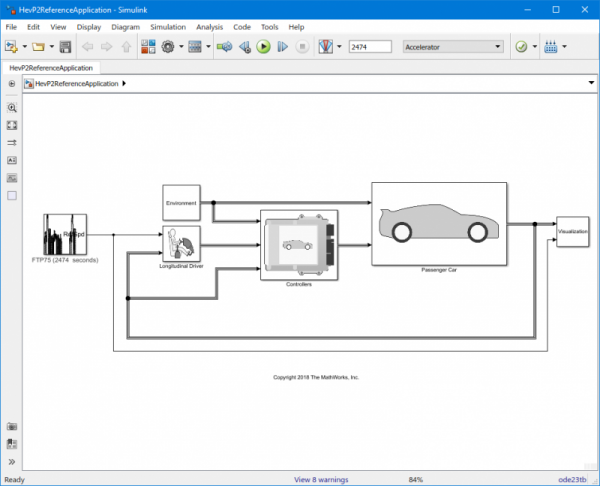
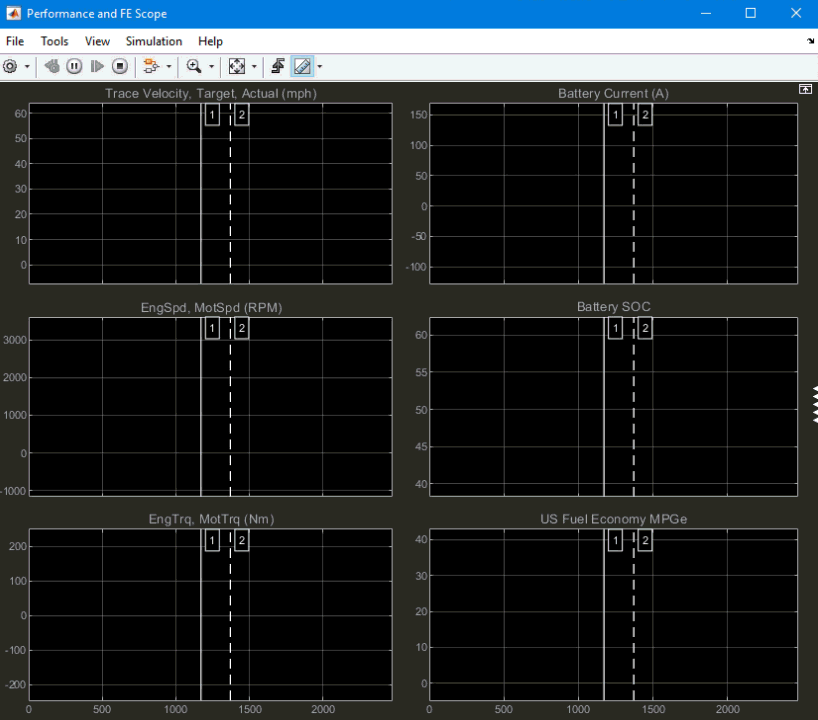
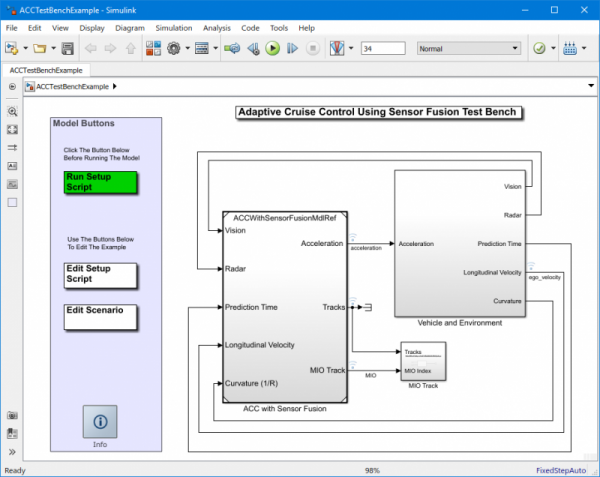
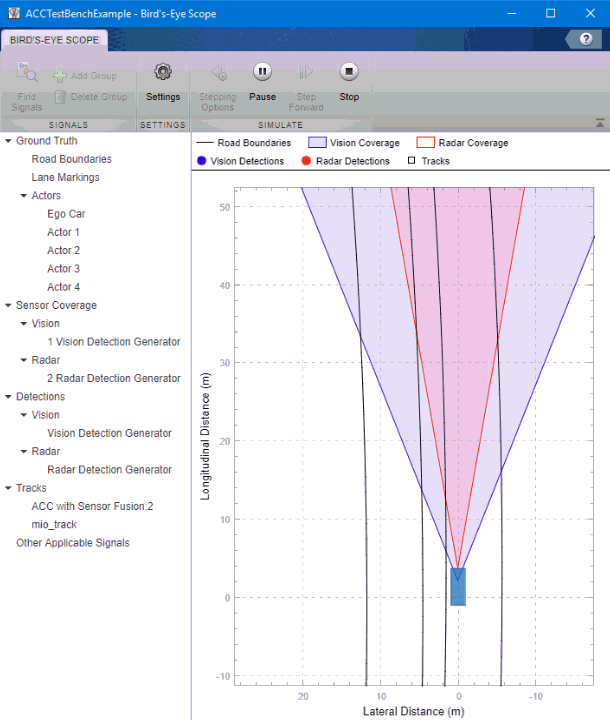




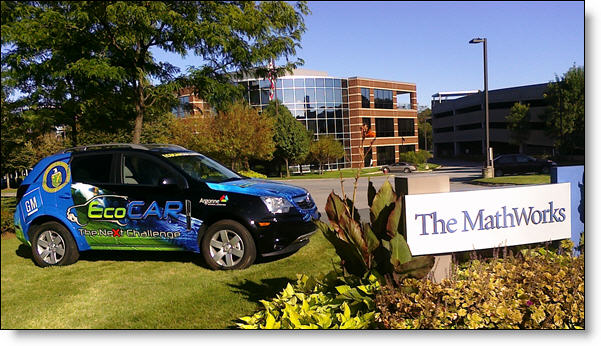



コメント
コメントを残すには、ここ をクリックして MathWorks アカウントにサインインするか新しい MathWorks アカウントを作成します。